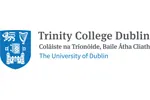About European Studies, BA (Hons) - at Trinity College Dublin
Students entering this programme will study two languages from French, German, Italian, Russian and Spanish.
Italian and Russian are available from beginner level.
No student may study more than one language as a beginner.
What is European studies?Many colleges and universities offer courses called European studies, but the subject can mean different things in different institutions. Often these programmes focus on the contemporary integration process in the European Union and combine social sciences with languages. At Trinity the European studies programme is different. It is a broad ranging, multidisciplinary programme which aims to discover Europe as a multicultural landscape and has a strong focus on history and cultural history. It studies the European past in order to understand the present, and examines contemporary Europe in all its complexity on a continent-wide basis. Students entering this course will study two out of five European languages (French, German, Italian, Russian, Spanish). Italian and Russian can be studied from beginner's level. Students also study the European past and present through three disciplines - history, history of ideas and social sciences (politics and sociology). The Junior Sophister (third year) of study is spent at a university abroad.
Is this the right course for me?If you are a good linguist and also have an interest in history, politics and the workings of contemporary society you will enjoy this course. European studies is explicitly designed for students with a broad intellectual appetite.
Course objectivesThis course aims to equip you with a high degree of linguistic competence in two European languages, an intellectual grasp of three broad academic disciplines, and an understanding both of the nature of contemporary Europe and of the forces which have shaped the European past.
Course contentHistory, history of ideas, politics and sociology are studied in tandem with your two chosen languages. You will study both languages with equal intensity in the first two years, after which one becomes your major, and the other your minor language. In the language courses, the learning of the language is embedded in the study of the society and culture of the countries in which the language is spoken. While the examination of historical and political sources forms an integral part of language work, literature is not studied as part of this course until the final year. The history of ideas or cultural history is the core subject of the programme and is compulsory in each of the four years. This subject aims to familiarise students with the evolution of European thought and culture from the Renaissance to the present. In first year all courses are compulsory for all students. From the second year onwards you will be able to choose the disciplines that interest you most, and so tailor the degree to your specific strengths and interests.


